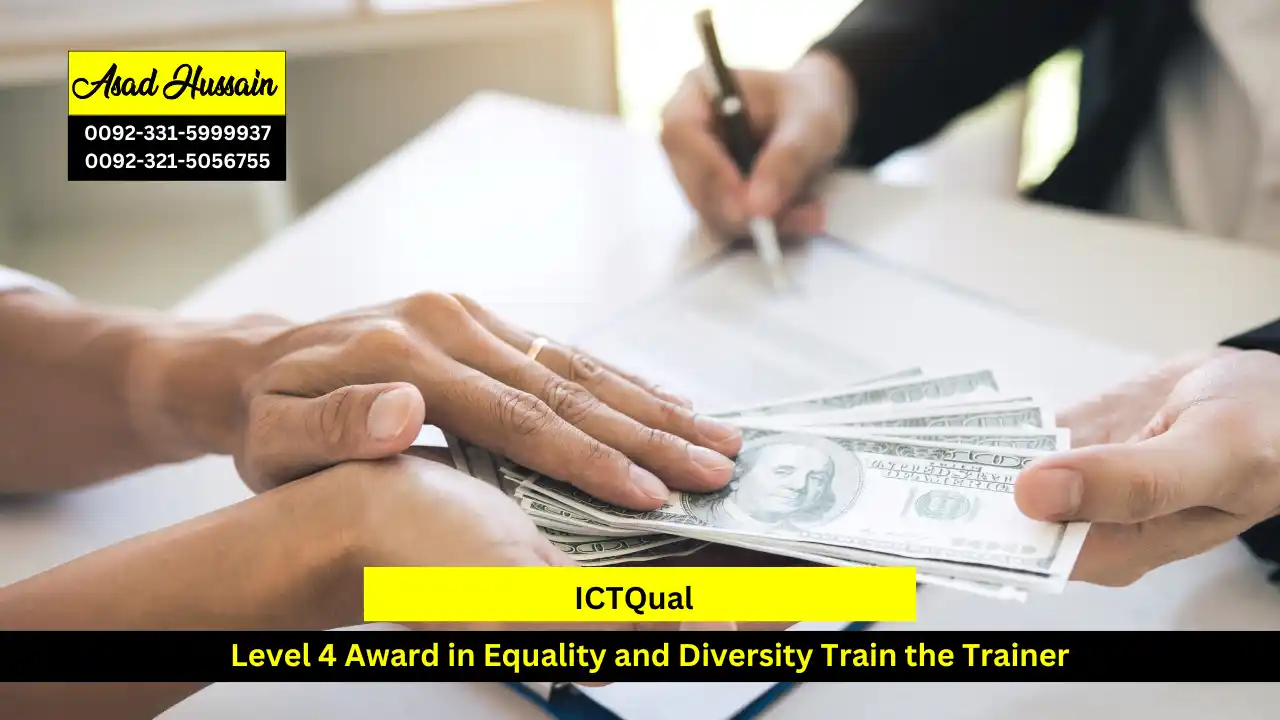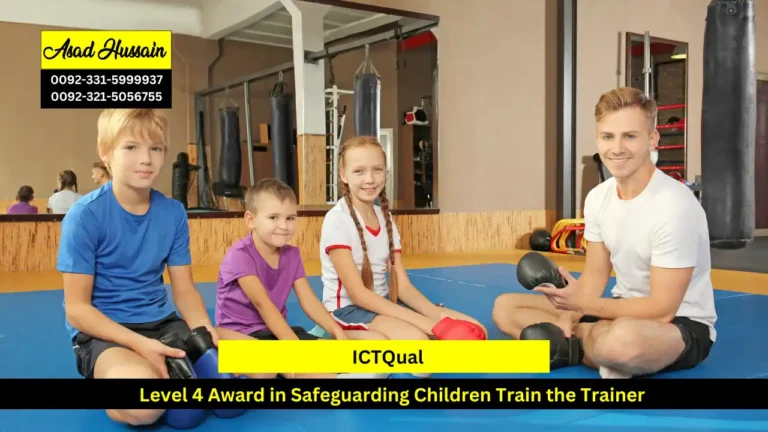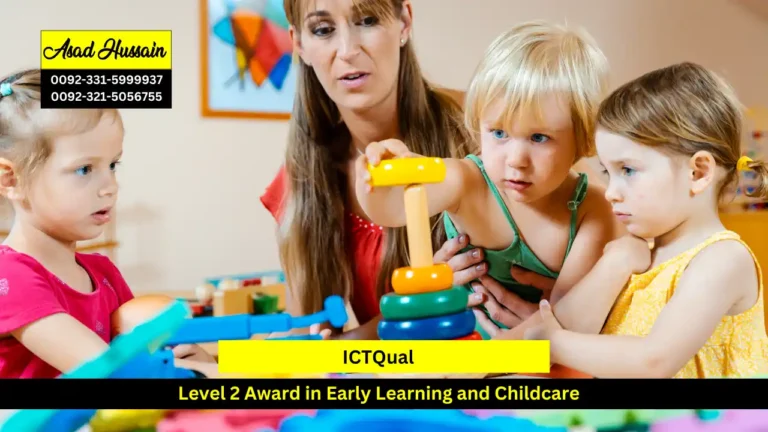In today’s rapidly evolving world, the importance of equality and diversity has never been more crucial. As organizations and institutions strive to create inclusive environments, the role of trainers who can educate others on these critical issues becomes increasingly vital. The ICTQual Level 4 Award in Equality and Diversity Train the Trainer is a program designed to equip individuals with the knowledge and skills needed to champion equality and diversity within various settings.
The ICTQual Level 4 Award in Equality and Diversity Train the Trainer is a specialized qualification aimed at those who are passionate about promoting inclusive practices and educating others on the importance of diversity. This course is ideal for trainers, educators, HR professionals, and anyone involved in organizational development or community work.
This qualification is perfect for anyone looking to make a positive impact by promoting equality and diversity. Whether you are a seasoned trainer looking to specialize in this area or a professional seeking to enhance your skills, the ICTQual Level 4 Award in Equality and Diversity Train the Trainer offers valuable tools and knowledge to help you succeed.
In a world where diversity is increasingly recognized as a strength, the role of equality and diversity trainers is more important than ever. The ICTQual Level 4 Award in Equality and Diversity Train the Trainer empowers individuals to lead the way in creating inclusive environments where everyone can thrive. By enrolling in this program, you can play a pivotal role in fostering understanding, respect, and equality within your organization and beyond.
Program Highlights
Mandatory Units
- Introduction to Equality and Diversity Training
- Legislation and Policies
- Unconscious Bias and Stereotypes
- Cultural Competence and Sensitivity
- Addressing Discrimination and Harassment
- Inclusive Leadership and Organizational Culture
- Designing and Delivering Equality and Diversity Training
- Facilitation Skills and Techniques
- Assessing Learning Outcomes and Providing Feedback
- Continuous Professional Development and Improvement
- Candidates applying for this course typically need to have a minimum educational qualification equivalent to a high school diploma or its international equivalent. Some training providers may require higher educational qualifications, such as a bachelor’s degree or relevant certifications.
- While prior experience in equality and diversity-related roles may not always be mandatory, candidates should ideally have some background or exposure to relevant fields. Experience in human resources, diversity and inclusion initiatives, community outreach, education, or related areas can be advantageous.
- Applicants should demonstrate a basic understanding of concepts related to equality, diversity, and inclusion. This includes familiarity with issues such as discrimination, unconscious bias, cultural competence, and systemic inequalities.
- Proficiency in verbal and written communication is essential for delivering effective training sessions. Candidates should be able to communicate fluently in the language of instruction and convey complex information clearly and sensitively to diverse audiences.
- Candidates should have a genuine interest in promoting equality, diversity, and inclusion within their organizations, communities, and society. They should demonstrate a commitment to upholding principles of fairness, respect, and social justice.
Introduction to Equality and Diversity Training
- Define the concepts of equality and diversity.
- Explain the importance of equality and diversity in various organizational contexts.
- Identify key stakeholders and their roles in promoting equality and diversity.
Legislation and Policies
- Summarize relevant equality and diversity legislation and policies.
- Analyze the implications of legislation and policies on organizational practices.
- Develop strategies to ensure compliance with legal requirements.
Unconscious Bias and Stereotypes
- Define unconscious bias and stereotypes.
- Recognize the impact of unconscious bias on decision-making processes.
- Apply techniques to mitigate unconscious bias in professional settings.
Cultural Competence and Sensitivity
- Define cultural competence and sensitivity.
- Demonstrate an understanding of cultural differences and their implications.
- Develop strategies to promote cultural sensitivity within diverse teams.
Addressing Discrimination and Harassment
- Identify forms of discrimination and harassment.
- Explain the impact of discrimination and harassment on individuals and organizations.
- Implement procedures to address and prevent discrimination and harassment incidents.
Inclusive Leadership and Organizational Culture
- Describe the characteristics of inclusive leadership.
- Evaluate organizational culture to identify strengths and areas for improvement in promoting diversity.
- Develop leadership strategies to foster inclusivity and equity within teams and organizations.
Designing and Delivering Equality and Diversity Training
- Develop learning objectives for equality and diversity training programs.
- Design training materials that are inclusive and engaging.
- Deliver effective equality and diversity training sessions using appropriate methods and techniques.
Facilitation Skills and Techniques
- Apply facilitation techniques to encourage participation and discussion during training sessions.
- Manage group dynamics and resolve conflicts effectively.
- Adapt facilitation approaches to accommodate diverse learning styles and preferences.
Assessing Learning Outcomes and Providing Feedback
- Develop assessment criteria to measure learning outcomes related to equality and diversity.
- Evaluate participant performance against established criteria.
- Provide constructive feedback to enhance participant understanding and skills.
Continuous Professional Development and Improvement
- Identify opportunities for continuous professional development in the field of equality and diversity training.
- Engage in reflective practice to evaluate personal performance and identify areas for improvement.
- Implement strategies to stay updated on emerging trends and best practices in equality and diversity.
This course is designed for professionals across various sectors who are committed to fostering inclusive environments and promoting equality and diversity within their organizations. It is ideal for trainers, educators, HR professionals, and managers who wish to deepen their understanding of equality legislation, unconscious bias, and cultural sensitivity. Additionally, individuals aspiring to become effective facilitators of diversity training sessions will benefit from learning how to design inclusive training programs and assess their impact. Whether you are looking to enhance your career prospects, drive organizational change, or simply broaden your knowledge in this critical area, this course offers valuable insights and practical skills to empower you as a champion of equality and diversity.







